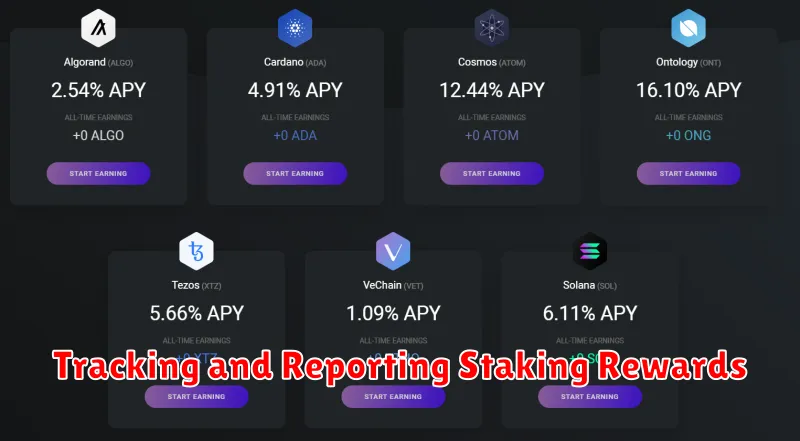Are you dreading crypto tax filing season? Don’t let complicated regulations and confusing transactions stress you out! This guide provides simple tips and tricks to make your crypto tax filing a breeze. Learn how to accurately report your cryptocurrency gains and losses, avoid costly mistakes, and confidently navigate the world of crypto tax compliance. We’ll cover everything from tracking your transactions to choosing the right tax software, so you can file your taxes with ease and peace of mind. Get ready to simplify your crypto taxes!
Key Documents You Need for Tax Filing
Navigating crypto tax can feel daunting, but having the right documentation makes the process significantly smoother. Here are the key documents you’ll need to accurately file your crypto taxes:
1. Transaction Records from Exchanges: This is your most crucial document. These records, usually downloadable as CSV or Excel files, detail all your cryptocurrency transactions, including buys, sells, trades, and transfers, along with the date and the price (in both fiat and cryptocurrency). Make sure you download these records for every exchange you used.
2. Proof of Stake (PoS) Rewards Records: If you participated in staking, you’ll need records documenting the rewards you earned. These usually come from your staking platform or wallet provider. Ensure these records specify the date, amount of rewards received, and the relevant cryptocurrency.
3. AirDrop and Fork Records: If you received airdrops or participated in cryptocurrency forks, keep detailed records of these events. This should include the date, the cryptocurrency received, and its value at the time of receipt.
4. Tax Software or Spreadsheet: While not a document *per se*, using tax software designed for crypto or creating a detailed spreadsheet is essential for organizing your transaction data and calculating your capital gains and losses. This will help you accurately report your crypto activity to the relevant tax authorities.
5. Wallet Records (Optional but Recommended): Although exchange records are usually sufficient, having records from your personal wallets can provide additional supporting documentation. This is particularly helpful if you made transactions not directly traceable to an exchange.
Gathering these documents meticulously is vital for accurate tax filing and helps avoid potential audits or penalties. Remember to consult with a tax professional if you have complex crypto transactions or are unsure about any aspect of crypto tax reporting.
Choosing the Right Tax Software for Crypto

Navigating the complex world of crypto taxes can be daunting, but the right software can simplify the process significantly. Choosing the right tool depends on your individual needs and the complexity of your crypto transactions.
Consider these key factors when selecting crypto tax software:
- Ease of use: Look for intuitive software with a user-friendly interface, especially if you’re not tech-savvy. A clean design and straightforward instructions are crucial.
- Supported exchanges and wallets: Ensure the software integrates with the platforms where you hold and trade your crypto. Many programs support major exchanges, but double-check compatibility before committing.
- Transaction tracking capabilities: The software should automatically import your transaction history from various sources, minimizing manual data entry. This saves time and reduces errors.
- Tax calculation accuracy: Accuracy is paramount. Choose software known for its reliable tax calculations, adhering to relevant tax laws and regulations.
- Reporting features: The software should generate the necessary tax forms (like Form 8949) in the correct format, saving you the hassle of manual preparation.
- Cost: Prices vary greatly, from free (often with limitations) to premium subscription services. Weigh the cost against the features offered and your transaction volume.
- Customer support: Access to reliable customer support is important, especially if you encounter difficulties. Check reviews to gauge the responsiveness and helpfulness of their support team.
By carefully considering these factors, you can choose crypto tax software that streamlines your tax filing, ensures accuracy, and minimizes stress. Remember to always double-check the generated reports before filing your taxes.
Tracking and Reporting Staking Rewards

Staking rewards, while lucrative, add complexity to your crypto tax filings. Accurately tracking and reporting them is crucial to avoid penalties. The IRS considers staking rewards as taxable income, much like interest earned on a traditional savings account.
Effective tracking begins with meticulous record-keeping. Use a spreadsheet or dedicated crypto tax software to log each staking event, including the date, the amount of cryptocurrency staked, the reward received (in both cryptocurrency and its USD equivalent at the time of receipt), and the relevant blockchain transaction ID.
Reporting your staking rewards on your tax return requires careful consideration of your specific circumstances. The value of the reward at the time of receipt is what’s generally taxed, and this value can fluctuate significantly. Consult a tax professional or use reputable tax software designed to handle cryptocurrency transactions to ensure accurate reporting. They can help you determine the appropriate tax form and ensure compliance with all relevant regulations.
Remember, failing to accurately report your staking rewards can lead to serious consequences. Proactive tracking and careful reporting are essential for a smooth and compliant crypto tax filing process.
Understanding Tax Laws for Crypto Traders
Navigating the tax implications of cryptocurrency trading can feel daunting, but understanding the basics is crucial for compliance. The IRS classifies cryptocurrency as property, not currency, meaning transactions are taxable events.
Capital gains taxes apply to profits from selling cryptocurrency. The tax rate depends on your holding period. Short-term gains (held for one year or less) are taxed at your ordinary income tax rate, while long-term gains (held for over one year) are taxed at lower capital gains rates. It’s important to accurately track the cost basis of each cryptocurrency you acquire to calculate your profit or loss.
Mining cryptocurrency is considered taxable income at the fair market value on the date you receive it. Similarly, earning cryptocurrency through staking or airdrops is also a taxable event, with the value at the time of receipt determining your tax liability.
Record-keeping is paramount. Meticulously track all transactions, including purchase dates, amounts, and sale prices. Consider using crypto tax software to simplify the process and ensure accuracy. Failing to accurately report your crypto transactions can result in significant penalties.
Tax laws surrounding cryptocurrency are constantly evolving. Staying updated on changes and consulting with a qualified tax professional is advisable to ensure compliance and minimize your tax burden. They can provide personalized advice based on your specific circumstances and help you navigate the complexities of crypto tax regulations.
How to Handle Crypto Losses on Taxes

Dealing with crypto losses on your taxes can seem daunting, but understanding the basics simplifies the process. The key is to accurately report both your gains and your losses to minimize your tax liability. The IRS treats cryptocurrency transactions like the sale of property, meaning you’ll need to track each trade.
To handle losses, you’ll need to determine your cost basis for each cryptocurrency you sold at a loss. This is typically the amount you originally paid for the crypto. You’ll then subtract this cost basis from the sale price to calculate your loss. For example, if you bought Bitcoin for $10,000 and sold it for $5,000, your loss is $5,000.
Important Note: You can only deduct crypto losses up to the amount of your crypto gains in a given tax year. Any excess losses can be carried forward to future tax years to offset future gains. This is called a capital loss carryforward.
Accurate record-keeping is crucial. Keep detailed records of all your crypto transactions, including dates, amounts, and exchange details. Using crypto tax software can significantly simplify this process, automating calculations and generating the necessary reports for your tax return. Don’t hesitate to consult with a qualified tax professional if you have complex transactions or are unsure about any aspect of crypto tax reporting.
Properly reporting your crypto losses can help you significantly reduce your tax bill. By understanding the rules and maintaining meticulous records, you can navigate the complexities of crypto taxes with confidence.
Best Practices for Keeping Accurate Records
Accurate record-keeping is crucial for stress-free crypto tax filing. Start by using a crypto tax tracking software or spreadsheet to meticulously log all your transactions. This includes the date, type of transaction (buy, sell, trade, airdrop, etc.), amount of cryptocurrency received or sent, and the fair market value (FMV) at the time of the transaction.
Consolidate all your cryptocurrency accounts into one central tracking system. This makes it easier to see the complete picture of your holdings and transactions. Don’t forget to record any fees paid, as these are often deductible.
Maintain original documentation for all transactions. This includes exchange statements, wallet transaction histories, and any other relevant paperwork. Store these documents securely, ideally in a cloud-based system with robust security features. Consider using a password manager to protect sensitive information.
Regularly review and reconcile your records. Identify and correct any discrepancies promptly to avoid errors accumulating over time. This proactive approach will save you headaches later when it’s time to file your taxes.
Finally, understand the tax implications of your transactions. Familiarize yourself with the relevant tax laws in your jurisdiction. If you’re unsure about anything, consult a qualified tax professional specializing in cryptocurrency taxation.
Working with a Crypto Tax Professional
Navigating the complex world of crypto taxes can be daunting. A crypto tax professional can significantly simplify the process, saving you time and potentially preventing costly errors. They possess specialized knowledge of the constantly evolving tax regulations surrounding cryptocurrency transactions.
Choosing the right professional is crucial. Look for someone with experience in handling crypto tax returns and a proven track record. Check their qualifications and client testimonials. Consider their fees and the services offered – some may simply prepare your return, while others provide more comprehensive services, such as tax planning and strategy.
What a crypto tax professional can do for you: They can help you accurately categorize your transactions (e.g., trading, staking, airdrops), calculate your capital gains and losses, and ensure you’re utilizing all applicable deductions and credits. They can also help you navigate complex scenarios like tax implications of DeFi activities or NFTs. This expertise can be invaluable in ensuring compliance and minimizing your tax liability.
When to consider a professional: If you have a large number of transactions, complex trading strategies, or significant crypto holdings, engaging a professional is highly recommended. Even if your crypto activities seem straightforward, the ever-changing regulatory landscape makes expert guidance beneficial.
Ultimately, working with a crypto tax professional offers peace of mind. It allows you to focus on your crypto investments while ensuring your tax obligations are handled correctly and efficiently. The cost of professional assistance is often outweighed by the potential benefits of accurate filing and avoiding costly penalties.

